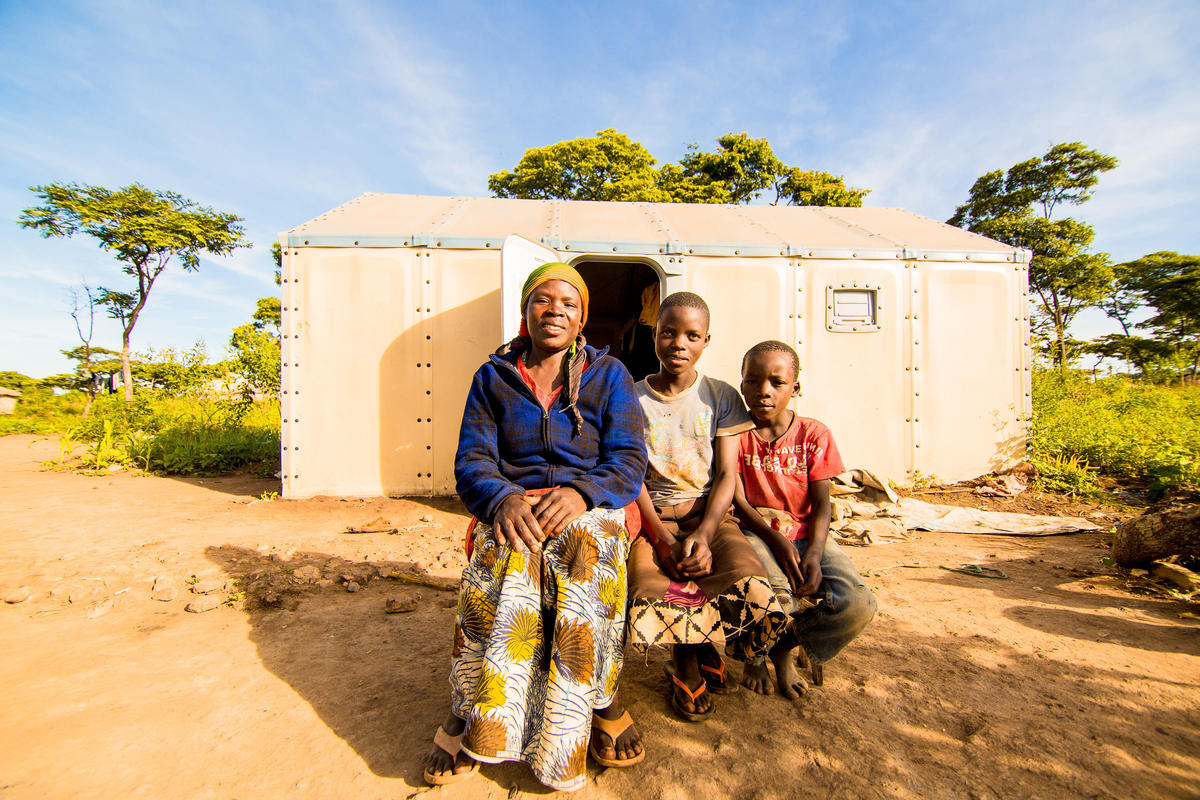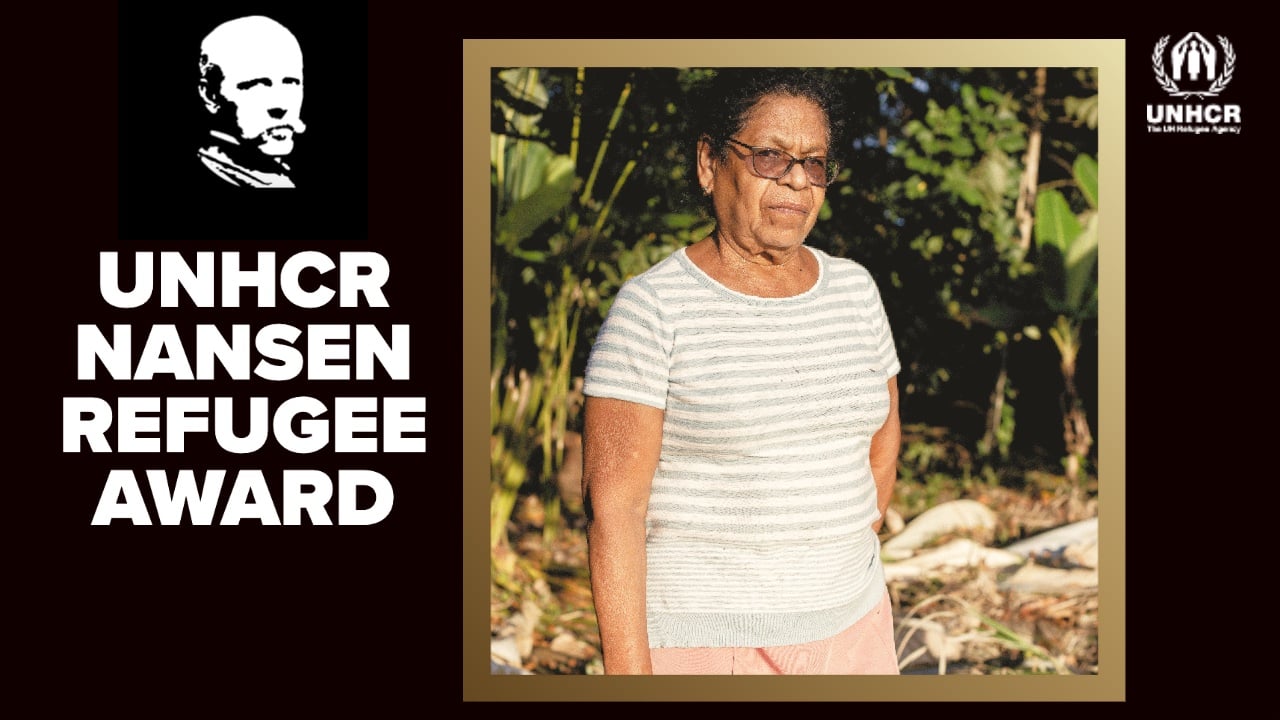Innovative 'keyhole' gardens help refugees improve their nutrition

Innovative 'keyhole' gardens help refugees improve their nutrition
Venancia Nibitanga appears from behind her house with a bunch of green vegetables. She washes them carefully with clean water and cuts them into smaller pieces to cook.
Her three-year-old daughter watches intently.
“She is always by my side. I think one day she will be a great cook, just like her mother,” she laughs.
Venancia, 35, is among 1,300 families in Tanzania’s refugee camps who are involved in a vegetable production project aimed at diversifying diets and improving nutrition at home.
The project, jointly run by UNHCR, the UN Refugee Agency and the Danish Refugee Council, is helping families like Venancia’s to establish special ‘keyhole gardens’ and provides them with vegetable seeds, tools and training on good farming practices.
"They can produce food all year round."
Keyhole gardens are small circular raised beds, made with locally available low-cost materials. They have a keyhole-shaped indentation on one side to allow gardeners to add uncooked vegetable scraps, greywater, and manure into a composting basket that sits in the center of the bed. Compared to regular vegetable gardens, they require less labour and water, and no costly fertilizers.
“They can also produce food all year round, even under harsh temperatures and support the production of at least five varieties of vegetables at a time,” said Oyella Agnes, the Area Manager for the Danish Refugee Council in Tanzania. “This is key in supporting dietary diversity. It is also so prolific that its produce is more than enough to feed a family of eight persons.”
Venancia, a single mother of seven, fled Burundi’s political crisis four years ago, reaching Tanzania after a tortuous three-day journey. Before the project, her family was solely dependent on a monthly food ration distributed in the camps, hosting around 240,000 refugees, which she found barely enough.
“The children used to have a single meal a day, without vegetables,” explains Venancia, who often worried that the ration would run out before the end of the month. “Now they have more to eat and it is nutritious too.”
According to preliminary estimates by the UN World Food Programme 41.5 million people in the East and Horn of Africa currently face acute food insecurity because of the COVID-19 pandemic. Across the region, refugees are experiencing food ration cuts as high as 30 percent.
"Food is a basic human right."
In Tanzania, the amount of food distributed to refugees in the past few months has gradually reduced to 72 per cent of the total food basket’s monthly needs. The reduction is in part due to a cost adjustment to accommodate the increased distribution costs that came with the need to mitigate the risk of COVID-19 transmission.
The World Food Programme requires US$21 million in Tanzania to ensure that refugees can receive their full monthly rations from now until March 2021.
“Food is a basic human right. Programs like the keyhole garden provide refugees and other forcefully displaced populations with the opportunity to grow their own food and contribute to the restoration of human dignity: food, self-sufficiency and nutrition,” said Antonio Canhandula, UNHCR Tanzania’s Representative.
As she reaps the benefits of the project, Venancia wants others to benefit too.
“At first, I used to share my excess vegetables with neighbours who had none,” she says. “Now, I am teaching them to establish their own keyhole gardens and produce their own food. It is easy and everyone can do it.”












